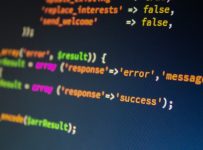
The software development landscape is undergoing a seismic shift with the emergence of low-code and no-code platforms. These platforms are redefining the norms of software creation by making it accessible to a diverse audience, irrespective of their coding knowledge. This transformation is democratizing software development, allowing for a broader, more inclusive approach to creating software solutions.
Breaking Down Barriers: The Democratization of Software Development
A Level Playing Field
Low-code and no-code platforms are crucial in leveling the software development playing field. By offering intuitive and user-friendly interfaces, they enable individuals without a background in coding to design, develop, and deploy software, thereby fostering diversity and inclusivity in software creation.
Speeding Up Innovation
The streamlined development processes provided by these platforms facilitate a faster transition from concept to deployment, driving innovation and allowing businesses to respond swiftly to market changes and maintain a competitive edge in today’s dynamic environment.
Advantages of Low-Code Platforms
Enhancing Development Agility
Low-code platforms provide the advantage of creating software with minimal hand-coding. This not only accelerates the development process but also allows developers to focus on more complex and innovative tasks, thereby optimizing resource utilization and enhancing productivity.
Seamless Integration and Streamlined Operations
The flexibility of low-code platforms supports the smooth integration of various workflows and systems, allowing organizations to create bespoke solutions that align with their specific needs and objectives, leading to improved operational efficiency and user satisfaction.
The No-Code Revolution: Fostering Inclusive Innovation
Opening Doors to Diverse Perspectives
No-code platforms go a step further by eliminating coding altogether, enabling a wider range of individuals to bring their ideas to life. This inclusivity is pivotal in fostering a diverse and innovative software development landscape, reflective of varied experiences and needs.
Bridging the Divide Between IT and Business
The simplicity of no-code platforms helps in narrowing the gap between technical and non-technical stakeholders, fostering collaboration and mutual understanding, and ensuring the alignment of software solutions with business goals and values.
The Road Ahead: Future Trajectories of Low-Code and No-Code Platforms
Expansion and Evolution
The future of software development sees continued growth and diversification of low-code and no-code platforms, offering more sophisticated features, customization options, and integrations, meeting a wide array of user needs and preferences.
Democratizing Access to Cutting-Edge Technologies
Low-code and no-code platforms are poised to enable access to advanced technologies such as artificial intelligence and machine learning without the need for specialized skills, opening new avenues for innovation and reshaping various industries.
Empowering Users through Advanced Platforms
The evolution of low-code and no-code platforms is being facilitated and enriched by robust platforms offering advanced tools and support. Platforms like gosoftwarebuy are crucial in this transformative journey, enabling users to navigate this new realm of software development with ease and confidence, and providing the necessary tools, resources, and support to leverage the full potential of these innovative platforms.
Unlocking Potential: Expanding Horizons in Software Development
Accessibility: A Catalyst for Innovation
The universal accessibility provided by low-code and no-code platforms acts as a catalyst for widespread innovation. By lowering the entry barriers to software development, these platforms are unlocking the potential present in diverse sectors of the population, enabling an unprecedented number of people to contribute their unique perspectives, ideas, and solutions to the software development ecosystem.
Fostering a Culture of Inclusive Development
The rise of these user-friendly platforms is fostering a culture of inclusivity and diversity in software development. This new culture values contributions from a broader demographic, embracing different experiences, backgrounds, and skill sets, and thereby enriching the quality and range of software solutions available.
Potential Impact on Industries
Transforming Business Strategies
The influence of low-code and no-code platforms extends beyond individual empowerment, permeating organizational strategies and operations. By providing rapid development and deployment capabilities, these platforms enable businesses to swiftly respond to market demands and opportunities, optimize operational processes, and enhance customer experiences, facilitating a more agile and adaptive business model.
Revolutionizing Industry Norms
The expansion of these platforms is set to revolutionize industry norms, making software development a universal skill rather than a specialized domain. This democratization of software creation will allow industries to harness the collective intelligence and creativity of their workforce, catalyzing innovation and progress across various sectors.
Advancement in Education and Learning
Promoting Computational Thinking
Low-code and no-code platforms play a significant role in promoting computational thinking among learners. They offer an approachable introduction to programming logic and concepts, allowing students to understand the fundamentals of software development and apply problem-solving skills in a practical manner.
Nurturing Future Innovators
By exposing a diverse group of learners to the possibilities of software creation, these platforms are nurturing the next generation of innovators and thinkers. They are cultivating a mindset of exploration, curiosity, and creativity among learners, preparing them to navigate and contribute to a world increasingly shaped by technology.
Enhanced Community Collaboration
Sharing Knowledge and Solutions
The collaborative environment enabled by low-code and no-code platforms fosters the sharing of knowledge and solutions among users. Community forums, discussion groups, and collaborative projects are flourishing, allowing users to learn from each other, resolve challenges collectively, and enhance their skills and understanding.
Expanding the Development Ecosystem
This enhanced community collaboration is contributing to the expansion of the development ecosystem, creating a rich repository of shared resources, templates, and components. This communal knowledge base accelerates development processes and encourages continuous learning and improvement within the community.
Sustainable Development and Environmental Impact
Eco-friendly Software Solutions
The democratization of software development also holds promise for the environment. The influx of diverse perspectives and ideas can lead to the creation of innovative, eco-friendly software solutions aimed at addressing environmental challenges and promoting sustainability.
Energy Efficiency and Resource Optimization
Low-code and no-code platforms also contribute to energy efficiency and resource optimization by streamlining the development process and reducing the time and resources required to create software solutions. This efficiency is pivotal in minimizing the environmental footprint of software development activities.
Final Thoughts
The democratization ushered in by low-code and no-code platforms is a transformative force in the world of software development. It is reshaping the landscape, breaking down barriers, and opening doors to untapped potentials and possibilities. The extensive reach and impact of these platforms, enriched by platforms like gosoftwarebuy signify a future where innovation is a collective pursuit, where diverse thoughts converge to create a tapestry of progressive solutions, and where the power of software creation is a universal tool for change and advancement. In this new era, the symphony of diverse voices and ideas will compose the melodies of progress, painting the canvas of the future with the colors of inclusivity, innovation, and hope.


